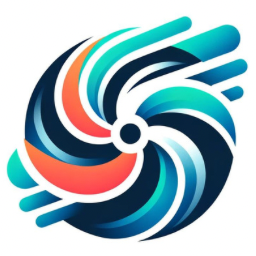Are you a freelancer searching for the perfect task management software? Look no further! In this comprehensive buyer’s guide, we will uncover the essential factors to consider when choosing the right task management software for your freelance business. From functionality and user-friendliness to customization options and pricing, we’ve got you covered. By the end of this article, you’ll have all the knowledge you need to make an informed decision and boost your productivity as a freelancer. So, let’s jump right in and find the ideal task management software that suits your unique needs!
Understanding the Need for Task Management Software
Importance of organization and structure in freelancing
As a freelancer, keeping your tasks organized and structured is crucial for your success. Without proper organization, it becomes easy to overlook important tasks, miss deadlines, and compromise the quality of your work. Task management software can provide you with the necessary tools to keep your workflow organized and ensure that you stay on top of all your responsibilities. With a well-organized system in place, you can maximize your productivity and deliver high-quality work to your clients.
Challenges of task handling without a management system
Managing tasks without a dedicated task management system can be quite challenging. Without a centralized tool to keep track of your tasks, you may find yourself relying on scattered notes, multiple calendars, or even your memory, which can lead to a disorganized and inefficient workflow. Additionally, manually assigning and tracking tasks can be time-consuming and error-prone, potentially jeopardizing the timely completion of your projects. By utilizing task management software, you can overcome these challenges and streamline your workflow.
Benefit of automating task management process
One of the main benefits of using task management software is the ability to automate various aspects of the task management process. With automation features, you can save time and effort by easily creating and assigning tasks to yourself or team members. The software can automatically send alerts and notifications to remind you of approaching deadlines or any updates related to your tasks. By automating these routine tasks, you can focus on your work and have peace of mind knowing that your task management process is running smoothly.
Key Features to Look for in Task Management Software
Task creation and assignment
A reliable task management software should allow you to create tasks effortlessly. Look for software that provides a user-friendly interface where you can easily create new tasks, define their priority, set due dates, and assign them to yourself or your team members. The ability to set dependencies between tasks can also be beneficial, allowing you to ensure that tasks are completed in the correct order.
Task tracking and progress monitoring
To effectively manage your tasks, it is essential to have visibility into their progress. Look for task management software that offers features like progress tracking, where you can update and monitor the status of each task. The software should provide clear visuals or reports that allow you to quickly assess the overall progress of your tasks and identify any bottlenecks or delays.
Alerts and notifications
Timely reminders and notifications play a crucial role in task management. A good task management software should have features that can send you alerts and notifications to keep you informed of upcoming deadlines, task assignments, or any changes made to the tasks. These notifications can be in the form of emails, push notifications, or even text messages, depending on your preferences and the software’s capabilities.
Collaboration features
If you work as part of a team, collaboration features are essential in task management software. Look for software that allows you to easily collaborate with your team members by assigning tasks, sharing files, and having discussions within the software. Features like commenting, file sharing, and real-time updates can greatly enhance communication and collaboration, improving overall productivity and efficiency.
Integration capabilities
Consider the software’s integration capabilities with other tools and systems that you use in your workflow. Seamless integration with project management tools, calendar apps, communication platforms, and other productivity software can save you time and effort by allowing you to access all your tasks and relevant information in one centralized location. This integration can streamline your workflow and make task management even more efficient.
Budget Considerations
Initial purchase cost
When considering task management software, it’s important to assess the initial purchase cost. Some software may require a one-time purchase, while others may have a subscription model. Consider your budget and determine the amount you are willing to invest in your task management software. Keep in mind that more expensive software may offer advanced features, but it may not always be necessary for your specific needs.
Subscription fees and charges
If the task management software you are interested in has a subscription model, make sure to understand the pricing structure. Consider the monthly or annual subscription fees and evaluate whether they align with your budget and the value you expect to receive from the software. Additionally, check if there are any additional charges for premium features or user licenses that may impact the overall cost.
Potential hidden costs
In addition to the upfront costs and subscription fees, be aware of any potential hidden costs associated with the task management software. Some software may require additional purchases or upgrades for certain features or integrations. Also, consider any costs related to training or onboarding of your team members, as well as ongoing support or maintenance fees that may be required.
Cost-effectiveness analysis
To determine the cost-effectiveness of the task management software, evaluate the features and benefits it offers in relation to its cost. Consider the potential time and productivity savings it can bring to your workflow. Assess whether the software’s abilities justify the investment and calculate the return on investment (ROI) you can expect from implementing the software. This analysis will help you make an informed decision based on both the cost and the value the software provides.
Assessing User Interface and Usability
Visual appeal and ease of use
A user-friendly and visually appealing user interface can greatly enhance your experience with task management software. Look for software that offers an intuitive interface, with clear navigation and well-organized menus. A clean and visually appealing design can make it easier to locate and interact with the necessary functions, ensuring a pleasant user experience.
Customization possibilities
Consider software that allows for customization according to your preferences and specific workflow requirements. Look for features that allow you to personalize the interface, such as changing themes, layouts, or color schemes. Additionally, check if the software allows you to customize task templates, workflows, or automation rules to align with your unique work processes.
Mobile application compatibility
As a freelancer, you may often find yourself working on the go. Therefore, it is crucial to assess the compatibility of the task management software with mobile devices. Look for software that offers a mobile application that is compatible with your smartphone or tablet’s operating system. This will allow you to access and manage your tasks, even when you are away from your computer, ensuring that you can stay productive wherever you are.
Cross-platform accessibility
Consider the cross-platform accessibility of the task management software. Ideally, you want to be able to access your tasks from different devices and operating systems seamlessly. Look for software that offers a cloud-based or web-based solution, allowing you to access your tasks through any browser. This flexibility ensures that you can manage your tasks regardless of the device or operating system you are using.
Determining Software Compatibility with Workflow
Suitability for project-based or ongoing tasks
Evaluate whether the task management software is suitable for the type of tasks you typically handle. Some software may be better suited for managing project-based tasks with specific deadlines and milestones, while others may be more suitable for ongoing tasks with recurring deadlines. Consider your workflow and the types of tasks you work on regularly to ensure that the software aligns with your needs.
Scalability and adaptability of the software
Consider the scalability and adaptability of the task management software. As your business grows, you may need to handle an increasing number of tasks and potentially work with a larger team. Ensure that the software can accommodate your growing needs by allowing you to add more users or upgrade to a higher plan without major disruptions. Additionally, check if the software offers customization options or advanced features that can adapt to your evolving workflow.
Integration with existing tools and systems
Assess whether the task management software can integrate smoothly with any existing tools or systems you use in your workflow. Compatibility with tools such as project management software, communication platforms, or calendar applications can significantly enhance your productivity and streamline your workflow. Look for software that offers integration options or an API that allows you to connect the software with your preferred tools.
Evaluating Customer Support
Availability and responsiveness of support team
Customer support is an important aspect to consider when selecting task management software. Assess the availability and responsiveness of the software’s support team. Look for software that offers multiple channels of support, such as email, phone, or live chat, to ensure that you can easily reach out for assistance when needed. Additionally, check if the software provides support during your working hours or if they have international support for freelancers working across different time zones.
Availability of resources such as tutorials and guides
Having access to comprehensive resources such as tutorials and guides can be invaluable when learning how to use the task management software effectively. Check if the software provides detailed documentation or video tutorials that cover various features and functionalities. These resources can help you quickly onboard new team members or resolve any issues you may encounter during your usage of the software.
User reviews and feedback on customer support
Before making a decision, take the time to research user reviews and feedback specifically related to the software’s customer support. Look for testimonials or reviews that comment on the support team’s responsiveness, knowledge, and willingness to help. Positive feedback in this area can give you confidence that you will receive the assistance you need promptly and efficiently.
Checking Software Credibility and Reputation
Developer’s reputation and expertise
When selecting task management software, it is essential to consider the credibility and reputation of the software developer. Conduct thorough research on the developer’s background, experience, and track record in the industry. Look for software developed by reputable companies or individuals with a proven history of creating reliable and high-quality software solutions.
Reviews and ratings by other users
User reviews and ratings can provide valuable insights into the task management software’s performance and user satisfaction. Look for reputable review platforms or online communities where users share their experiences with the software. Pay attention to both positive and negative reviews to understand the strengths and weaknesses of the software as reported by actual users.
Case Studies and testimonials
Consider the availability of case studies or testimonials from users who have successfully implemented the task management software. Case studies can provide real-world examples of how the software has improved productivity, efficiency, and project outcomes for other freelancers. Testimonials can also offer valuable insights into the software’s impact on users’ businesses and workflows.
The Importance of Data Security and Privacy
Privacy policies and data handling procedures
When considering any software, it is crucial to assess its privacy policies and data handling procedures. Look for software that is transparent about how it collects, stores, and manages your data. Ensure that the software adheres to industry-standard privacy practices and is compliant with relevant data protection regulations, such as the General Data Protection Regulation (GDPR) in the European Union.
Security measures and encryption methods
Data security should be a top priority when selecting task management software. Evaluate the security measures and encryption methods implemented by the software to protect your data from unauthorized access or breaches. Look for software that provides features like secure data transmission, encryption at rest, and robust user access controls to ensure the highest level of data protection.
History of data breaches or security incidents
Research the software developer’s history of data breaches or security incidents. Look for any reported incidents or vulnerabilities that may have compromised the security of their software in the past. Consider their response to these incidents and the measures they have taken to prevent future occurrences. Prioritizing a software with a clean track record in terms of data security can give you peace of mind and protect your sensitive information.
Trial Periods and Money-Back Guarantees
Availability of free trials or demo versions
To ensure that the task management software meets your requirements, look for software that offers free trials or demo versions. These allow you to try out the software’s features and functionalities before making a final decision. Take advantage of these trial periods to assess whether the software aligns with your workflow and provides the necessary capabilities and ease of use you require.
Conditions and duration of money-back guarantees
If the task management software does not provide a free trial, check if they offer a money-back guarantee. This gives you the option to try the software risk-free and request a refund if it does not meet your expectations. Pay attention to the conditions and duration of the money-back guarantee to ensure that you have enough time to thoroughly evaluate the software and make an informed decision.
Opportunity to assess the software before final purchase
Whether through a trial period or a money-back guarantee, the opportunity to assess the software before making a final purchase is crucial. This allows you to evaluate the software in a real-world scenario and determine its compatibility with your workflow. Take advantage of this opportunity to involve your team members or test the software with sample tasks to ensure that it meets your needs and aligns with your preferred way of working.
Making the Final Decision
Summarizing research and evaluations
Once you have gathered all the necessary information and completed your evaluations, take the time to summarize your research. Consider compiling a list of the key features, pros, and cons of each software you have evaluated. This summary will help you compare and contrast the different options, making it easier to identify the most suitable task management software for your freelance business.
Assessing the software against personal needs and preferences
Evaluate the software against your personal needs and preferences. Consider the specific features and functionalities that are essential for your workflow and assess how well each software meets those requirements. Take into account your preferred user interface, customization options, and integration capabilities to ensure that the software aligns with your unique work processes and preferences.
Considering long-term utility of the software
When making the final decision, consider the long-term utility of the task management software. Evaluate whether the software can grow with your business and adapt to your evolving needs. Consider factors such as scalability, upgrade options, and ongoing support to ensure that the software remains a valuable investment in the long run. Choosing a task management software that can support your future growth and development will save you time and effort in the future.
In conclusion, choosing the right task management software for freelancers is crucial for maintaining organization, streamlining workflow, and maximizing productivity. By understanding the need for task management software and evaluating key features, budget considerations, user interface and usability, software compatibility with workflow, customer support, credibility and reputation, data security and privacy, trial periods and money-back guarantees, and making the final decision based on thorough assessments, you can find a software solution that meets your unique needs and enhances your freelance business.







